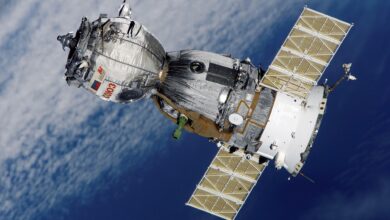How to use GPS Logger App: The Ultimate Guide to GPS Logger Apps
Discover the inner workings of GPS logger apps and learn how they empower you to track and record your journeys

Contents
Introduction
In today’s fast-paced world, the need for accurate location tracking and navigation has become more critical than ever before. GPS loggers have emerged as indispensable tools for a wide range of applications, from personal tracking to fleet management and beyond. In this comprehensive guide, we will delve into the world of GPS loggers, exploring their functionalities, benefits, and various applications.
What is a GPS Logger?
A GPS logger, short for Global Positioning System logger, is a device that records the precise location data of an object or person at regular intervals. These devices use a network of satellites to determine and log geographical coordinates, including latitude, longitude, altitude, and time.

How Does a GPS Logger Work?
Understanding how a GPS logger functions is fundamental to grasping its significance. These devices receive signals from multiple satellites in orbit and use triangulation to calculate their exact position on Earth’s surface. The collected data is then stored within the logger’s memory for later retrieval and analysis.
A GPS logger app is a mobile application that records and tracks your location using the Global Positioning System (GPS) technology built into your smartphone or tablet. Here’s how a GPS logger app typically works:
GPS Data Collection:
- When you open the GPS logger app and enable location services on your device, it starts collecting GPS data.
- Your device communicates with multiple GPS satellites in orbit, determining your precise latitude, longitude, altitude, and sometimes additional information like speed and heading.
Data Sampling:
- The app samples your location data at regular intervals, often every few seconds or minutes, depending on your settings.
- Some apps allow you to customize the sampling rate for better accuracy or to conserve battery life.
Data Storage:
- The collected GPS data is stored locally on your device, usually in a dedicated file or database.
Logging Options:
- GPS logger apps offer various logging options. You can choose to log data continuously, create waypoints at specific locations, or start and stop logging manually.
- Some apps offer additional features like geotagging photos, which associates pictures taken with your device’s camera with GPS coordinates.
Export and Sharing:
- Many GPS logger apps allow you to export your recorded data in various formats, such as GPX (GPS Exchange Format) or KML (Keyhole Markup Language).
- You can share your GPS tracks with others or use them for various purposes, including outdoor activities like hiking or cycling, research, or location-based analysis.
Map Visualization:
- Some GPS logger apps provide real-time map displays, showing your current location and the recorded track on a map within the app.
- Others may require you to import the recorded data into mapping software or websites to visualize your track.
Battery Management:
- GPS can consume a significant amount of battery power. Many GPS logger apps include power-saving options, such as screen dimming, background logging, or turning off the GPS when not in use.
Privacy and Permissions:
- To use a GPS logger app, you typically need to grant it permission to access your device’s location services. Be mindful of privacy settings and only use trusted apps to protect your location data.
Use Cases:
- GPS logger apps have various use cases, such as tracking your exercise routes, creating travel logs, monitoring fleet vehicles, conducting scientific research, or simply remembering the places you’ve been.
Data Management:
- It’s important to manage your logged GPS data, especially if you use the app frequently. Regularly back up and delete old data to free up storage space on your device.
The Versatility of GPS Loggers
Personal Tracking
GPS loggers offer an invaluable solution for personal tracking. Whether you want to keep an eye on your children’s whereabouts or ensure the safety of elderly family members, these devices provide real-time location updates and historical tracking data.
Fleet Management
For businesses with a fleet of vehicles, GPS loggers are indispensable. They enable companies to monitor vehicle routes, optimize fuel consumption, and enhance overall fleet efficiency. This results in cost savings and improved customer service.
Outdoor Adventures
Outdoor enthusiasts and adventurers often rely on GPS loggers to navigate through challenging terrains. These devices help hikers, cyclists, and explorers stay on course and ensure they can retrace their steps if necessary.
Geotagging
Photographers and travelers benefit greatly from geotagging, a feature facilitated by GPS loggers. By embedding location data into photos and videos, you can create vivid digital memories that capture not just the image but also the sense of place.
Choosing the Right GPS Logger
Selecting the perfect GPS logger for your needs can be a daunting task. Consider factors such as battery life, memory capacity, and connectivity options. Moreover, assess whether you require a handheld device or one that can be discreetly placed for covert tracking.
Setting Up Your GPS Logger
Once you’ve chosen a GPS logger, it’s essential to set it up correctly. Ensure the device has a clear line of sight to the sky for optimal satellite signal reception. Additionally, familiarize yourself with the logger’s software for data retrieval and analysis.
GPS Logger Privacy and Security
As with any technology that collects personal data, GPS loggers raise privacy and security concerns. It’s crucial to use these devices responsibly and only for legitimate purposes. Be aware of legal regulations in your area, especially when tracking individuals without their consent.
Conclusion
GPS loggers have revolutionized how we navigate our world. From enhancing personal safety to improving business operations, these devices offer a multitude of benefits. As technology continues to advance, we can expect GPS loggers to play an even more significant role in our lives.
FAQs
Are GPS loggers legal?
- GPS loggers are legal for most applications when used responsibly. However, it’s essential to respect privacy laws and obtain consent when tracking individuals.
How accurate are GPS loggers?
- GPS loggers can provide highly accurate location data, often within a few meters.
Can GPS loggers work without internet connectivity?
- Yes, most GPS loggers do not require an active internet connection to record location data. They store data internally and can be retrieved later.
Do GPS loggers work indoors?
- GPS loggers typically require a clear line of sight to the sky to receive satellite signals. They may not work reliably indoors or in areas with heavy obstructions.
Are there any subscription fees for GPS logger services?
- Some GPS logger services may require subscription fees for access to advanced features or real-time tracking services. Be sure to check with the manufacturer or service provider for details.
Read More






